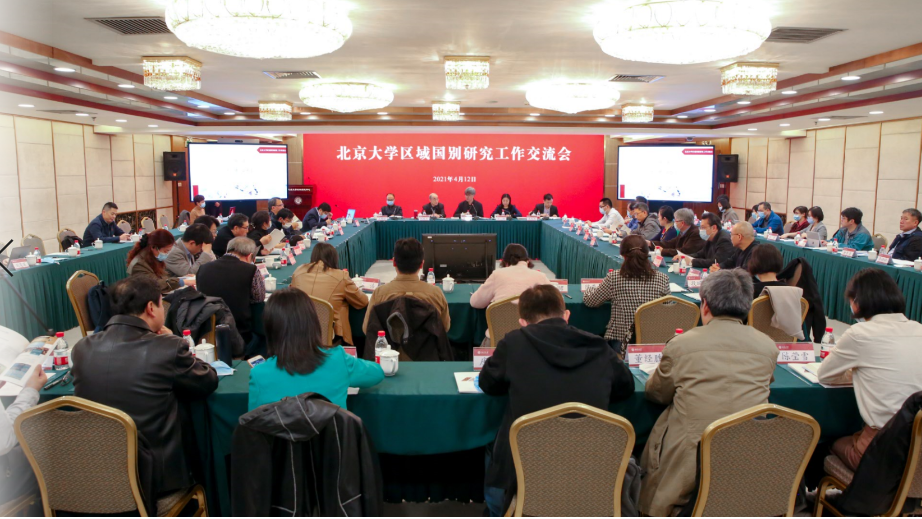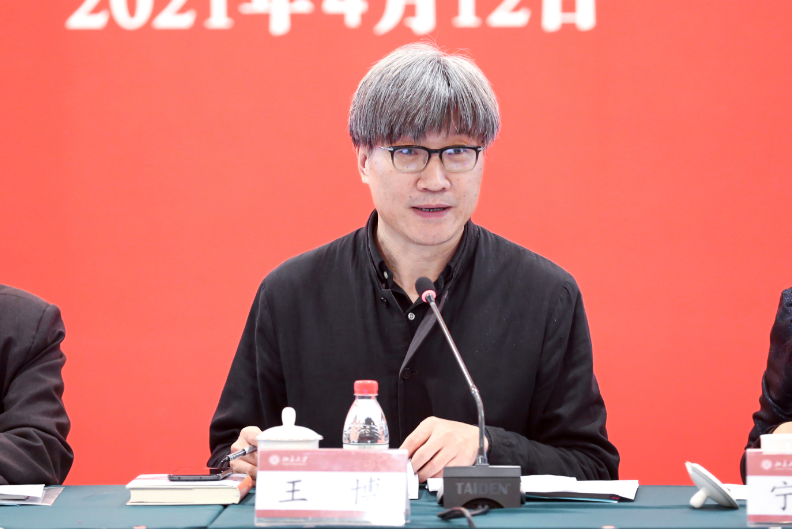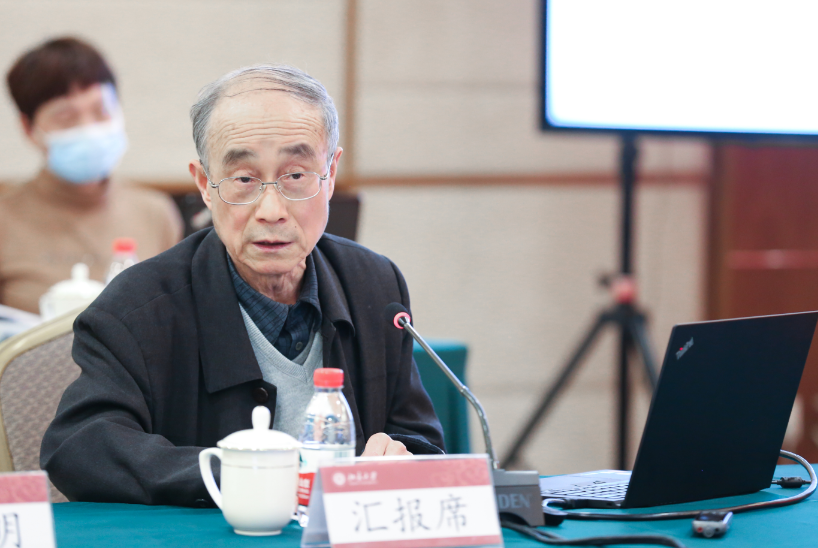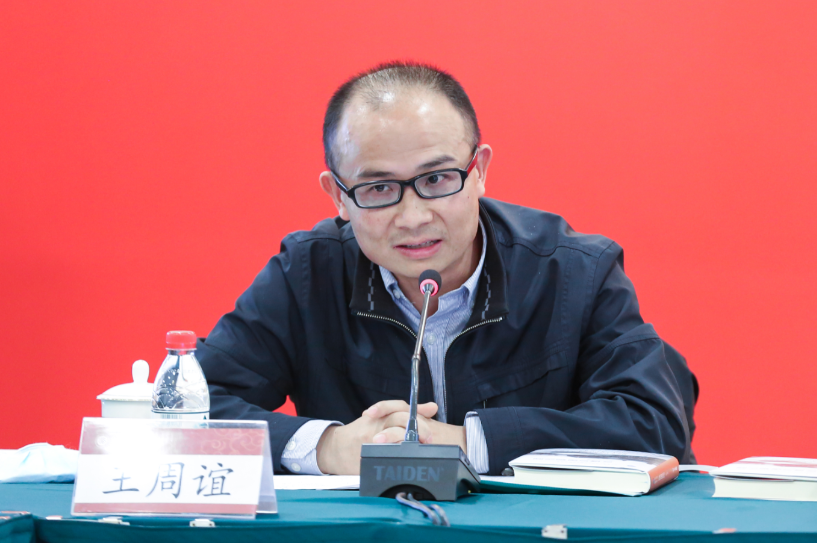The Peking University (PKU) Area Studies Exchange Meeting was held in the Yingjie Exchange Center on April 12, 2021. The meeting was to promote exchanges among PKU's different area studies centers, raise the level of area studies research and advance the "Double First-Class" initiative at the university.
The Office of Humanities and Social Sciences and the Institute of Area Studies co-hosted the meeting.
Wang Bo, vice president of PKU; Qian Chengdan, director of PKU's Institute of Area Studies (PKUIAS); Ning Qi, dean of PKU's School of Foreign Languages and executive deputy director of PKUIAS; Wang Zhouyi and Wu Jiewei, vice directors of PKU's Office of Humanities and Social Sciences, and 57 representatives from various centers attended the meeting.

Vice President Wang Bo said that PKU has a long tradition of area studies. In 2018, the university established the Institute of Area Studies to further carry forward the traditions and take full advantage of comparative advantages, to cultivate compound international talent, and to promote disciplinary construction of area studies with Chinese characteristics. During the past three years, PKUIAS has done much work to promote area studies at the university.

Currently, China is committed to forming a new structure of opening-up and raising the level of opening-up on all fronts. Therefore, bringing together the area studies forces on campus and reaching related consensus will further enhance the role of PKU in serving the national strategy and promoting international cooperation as well as advance the "Double First-Class" initiative of the university.
Prof. Qian Chengdan, director of PKUIAS, reported to the participants the work and development of the institute over the past three years; subsequently, each center summarized its own experiences. Participants also engaged in a lively discussion on the long-term development of area studies of PKU in the future.

Li Qiang, director of the European Studies Center, pointed out that, to promote area studies, we must vigorously strengthen the building of the talent team and actively explore the double-hire system.
Wang Yong, director of American Studies Center, said that it is necessary to strengthen planning and guidance for crucial results and outputs.
Tang Mengsheng, director of the Center for Pakistan Studies, pointed out that if universities want to play the role of think tank, they must lay a solid foundation. At the same time, they need to actively expand cooperation channels and strive to improve their ability to write think tank reports.
Guo Li, director of the Global Law and Policy Research Center, expressed his belief that we should attempt to tell the story of the rule of law in China on the international platform and strengthen the study of the rule of law in less developed regions.
Wang Min, assistant dean of the Institute of South-South Cooperation and Development, pointed out the importance of systematic research and data collection, and emphasized the advantages and effects of interdisciplinary cooperation in this process.
Liu Haifang, director of the Center for African Studies, stressed the significance of people-to-people exchanges in universities and proposed suggestions for integrating the school's research teams.
Yin Hui from the Institute for Global Health pointed out the need for interdisciplinary cooperation in the following two areas: strengthening the training of talent in health and raising the level of influence of the Chinese staff in the World Health Organization.
Yan Tian, director of the PKU-Yale Law and Policy Joint Research Center, introduced how to develop talent team building, international cooperation, and publication of research results better with PKUIAS.
Huang Liaoyu, director of the German Studies Center, said that we should strengthen top-level design to promote cooperation among different centers, and that the same goes for interdisciplinary and cross-cultural collaboration.

Wang Zhouyi, vice director of the Office of Humanities and Social Sciences, made the concluding remarks. He expressed his hope that PKUIAS and other centers could turn the meeting's results into practical actions and continue to play a benchmarking and leading role. Also, the centers need to reach development consensus, form development synergy, and promote the development of the school's area studies to encompass larger range, higher density, and more influential activities, thereby promoting the university's "Double First-Class" construction to a new stage, contributing to serving the country's major strategies and building a community with a shared future for mankind.
As a significant starting point for the exchange and cooperation of area studies, this meeting represented a new stage for integrating area studies at the university.


